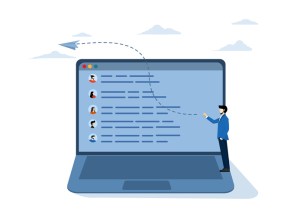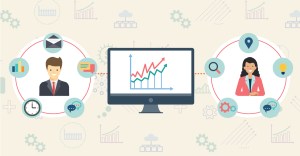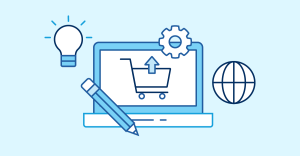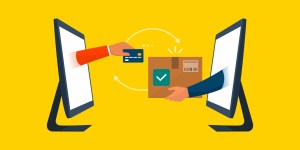5 Tips For Making Your Sales Processes Environmentally Friendly



Start with basic changes you make over the course of your day-to-day work. Consider these examples for making your sales processes environmentally friendly.
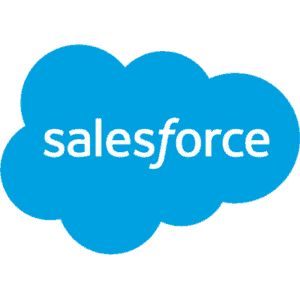
Salesforce Canada
Selling is basically about pitching, explaining and ultimately convincing a prospect to become a customer. In other words, it’s mostly talking. How could that possibly be bad for the environment?
We tend to point the finger at companies or entire industries that seem to drain our natural resources, or produce more waste than they should in an effort to turn a profit. In contrast, having a career in sales is “knowledge work,” which is not traditionally associated with adding to the effects of climate change.
Take a closer look, however, and you’ll see a lot of areas where sales could be transformed with sustainability and environmental issues in mind.
Sales has long been a very paper-based profession, from brochures and other collateral to lengthy contracts that need to be printed out over and over again. Even with the rise of tools like a CRM that offer the possibilities of more digitally-based data gathering, the change has been slow in some organizations.
Next, consider all the merch that sales teams have sometimes relied upon as part of their processes. This includes plastic stress balls, cheap pens and other throwaway items that have been a staple of trade shows and conventions. Many thank-you gifts sent out to clients, like T-shirts or coasters, soon find their ways into landfills as well.
Finally, there is the long-held belief that sales reps can only be successful if they are almost constantly getting on an airplane, or driving a car, to speak to a client in person. All those miles use fossil fuels and increase the size of a rep’s carbon footprint on the Earth.
Not every sales team is employed by a company that puts caring for the environment as one of its core principles. It’s worth considering whether the same is true for your customers, though. As more organizations become intentional about their values and purpose, they might be reconsidering who their key suppliers should be.
On an individual level, meanwhile, being more mindful of the environment can set a positive example for those you work with, and perhaps even your entire company.
This doesn’t require starting up your own non-profit or launching an activism campaign. It can start with basic changes you make over the course of your day-to-day work. Consider the following examples:
1. Make Soft Copies Your Standard
Rather than print off documents and take them to a client’s boardroom, why not e-mail them out instead? This may seem obvious, but old habits can die hard.
By emphasizing electronic or soft copies of sales collateral, you’re also enhancing the customer experience. It can be far easier to find soft copies in your inbox than searching through a filing cabinet, and you can access them even when you’re at home.
2. Close The Deal Digitally
A sale is often not official until the customer signs on the dotted line. You can still do that without actually using pen and paper, though.
Electronic signature tools are perfectly legal in addition to being fast and easy to use. You also don’t have to limit them to sales contracts. The same technology can be deployed when you have to respond to requests for proposals (RFPs), set up master vendor agreements or fill out forms based on a particular client’s procurement processes.
3. Reimagine Client Recognition
What’s the best way to say “thank you” to your top customers? It doesn’t have to be clutter.
Maybe you’ve heard the client talk about the volunteer work they do in their spare time. Make a charitable donation to the organization in question.
Does your client wish they had the budget to attend a virtual event as part of their professional development? Offer to sponsor their registration (as long as that doesn’t violate any of their company polices, of course).
When in doubt, think gift cards. More companies are offering them than ever before, and in most cases they no longer have to be printed out on cheap pieces of cardboard or plastic. You can even send a gift card that could be reloaded immediately following a contract renewal.
4. Meet Without Moving
As the pandemic proved, it is more than possible for people working in all kinds of jobs to work from anywhere. Sales reps were like many others in continuing to succeed even while they were sheltering-in-place at home.
What started out as a response to an emergency could continue as a best practice. Videoconferencing tools have matured to the point where reps are only one click away from seeing their clients’ faces. They can also share their screens to show presentations or run through a demo.
Many of the other followups or responses to client questions as a deal progresses no longer require trekking back to their office. If you’re using a cloud-based CRM, you can manage sales processes and almost every other aspect of your business with an app on your mobile phone.
5. Quantify Your Progress
Treat your commitment to environmental stewardship as you would any other important initiative within your company: measure it!
By setting hard goals and tracking your activities on a monthly or quarterly basis, you’ll feel a sense of momentum as you see your carbon footprint diminish. If you’re not seeing the results you want, you’ll have the data on hand to figure out where further improvements can be made.
If any of your customers are working for organizations that prioritize environmental stewardship as a value, don’t hesitate to ask them for guidance on how they made changes internally.
As sales processes shift, you might even see the same thing happen across other departments, from marketing to places like product development (where packaging could be reduced or changed to different materials).
Remember: there are few people more persuasive than sales people. Maybe you can use your skills to not only close more deals, but to help make the planet more sustainable in the long term.
